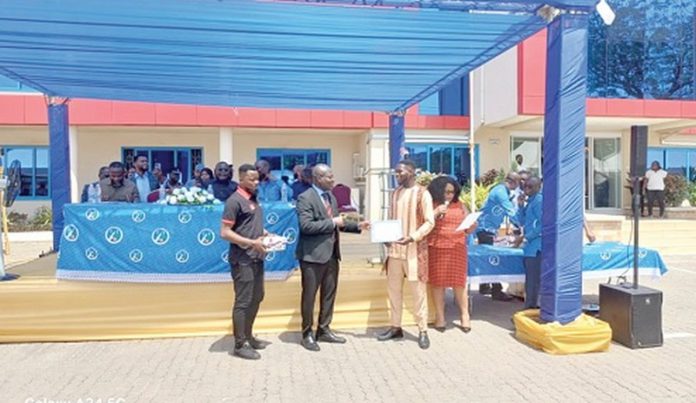The market is still flooded with substandard electrical cables that are said to be smuggled into the country through unapproved import sources.
A latest review of a nationwide surveillance conducted by the Ghana Standards Authority (GSA) showed that about 43 per cent of all imported electrical cable brands on the market were substandard or fake and could cause destruction to property and lives.
To reverse the trend, the GSA has pledged to partner the Energy Commission and other relevant stakeholders to bring the number of fake cables in the market to zero through the implementation of the new Electrical Wiring Cables and Accessories Regulation (L.I.2478).
The legislative instrument, which was passed into law by Parliament in the fourth quarter of 2023, seeks to create a new standardised regime for electrical cables in the country.
The Director-General of GSA, Prof. Alex Dodoo, made this known at the 20th electrical wiring graduation ceremony in Accra last Tuesday.
The graduation event was on the theme: “Ensuring the safety of life and property through the promotion of standardised cables and accessories.”
The 195 certified electrical wiring professionals (CEWP) went through the certification process of the Energy Commission successfully.
The training programme is aimed at ensuring the safety of life and property through the promotion of standardised cables and accessories.
In all, 938 practitioners were registered nationwide for the certification examination – November/December 2023 Electrical Wiring Certification Examination, of which 752 were successful, representing a pass rate of 80.17 per cent.
For the Accra Centre, 327 of them were registered, out of which 195 were successful.
This brings to 15,544 the number of certified electrical wiring professionals and inspectors in the country in the last 20 years.
Three-pronged approach
The Director-General further said that GSA had developed a three-pronged approach to solve the problem of substandard cables and accessories.
He said the approach included continuous testing and certification of all cables, encouraging local manufacture of both cables and accessories, testing and inspection of all imports, and increasing market surveillance to rid it of substandard cables.
“Already, we have trained the needed workforce to do that, and we shall not relent in our efforts.
“We have captured the three strategies in one word, ‘electrovigilance,” he added.
Prof. Dodoo said in collaboration with the Energy Commission, they were determined to work to ensure value for money.
Significance
The Executive Secretary of the Energy Commission, Oscar Amonoo-Neizer, said the use of quality-approved materials was essential to ensure the integrity and reliability of electrical systems.
He said as stakeholders in the industry, there was the need to prioritise the use of cables and accessories approved by the GSA.
Mr Amonoo-Neizer expressed concern that many buildings, including state-owned, still use outdated electrical wiring installations that had seen little or no repairs since installation.
“Outdated electrical wires are not only prone to malfunctions and breakdowns, but also cause serious hazards such as fires and electrocution.
“And such old systems are sometimes inefficient, leading to higher energy consumption and increased costs of maintenance and operations,” he added.
ALSO READ:
Franklin Cudjoe’s description of Akufo-Addo’s SONA will shock you [watch]

